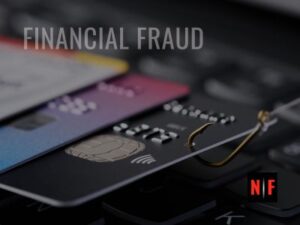NAKED FRAUD
Financial Fraud
Financial Fraud
Why Is Financial Fraud a Growing Global Threat?
 Financial fraud has become a significant global issue, affecting individuals, businesses, and economies on an unprecedented scale. With the rise of digital transactions and online banking, criminals have developed sophisticated schemes to exploit vulnerabilities in financial systems. From identity theft and credit card fraud to large-scale corporate embezzlement and Ponzi schemes, fraudulent activities continue to evolve, causing billions of dollars in losses each year. Developing countries, in particular, often face challenges in combating financial fraud due to weaker regulatory frameworks and limited enforcement resources.
Financial fraud has become a significant global issue, affecting individuals, businesses, and economies on an unprecedented scale. With the rise of digital transactions and online banking, criminals have developed sophisticated schemes to exploit vulnerabilities in financial systems. From identity theft and credit card fraud to large-scale corporate embezzlement and Ponzi schemes, fraudulent activities continue to evolve, causing billions of dollars in losses each year. Developing countries, in particular, often face challenges in combating financial fraud due to weaker regulatory frameworks and limited enforcement resources.
One of the key drivers of financial fraud is the increasing reliance on technology. Cybercriminals use phishing scams, ransomware, and fraudulent investment platforms to deceive victims and steal sensitive financial information. Cryptocurrencies, while offering innovative financial opportunities, have also been exploited for money laundering and fraudulent schemes due to their decentralized and often unregulated nature. Additionally, large-scale data breaches have exposed millions of personal records, making it easier for criminals to commit fraud on a massive scale. Governments and financial institutions worldwide are struggling to stay ahead of these threats, investing heavily in cybersecurity and fraud prevention measures.
Despite ongoing efforts, financial fraud remains a persistent challenge, requiring international cooperation and stronger legal enforcement. Countries are working together to create stricter regulations and improve cross-border investigations, but fraudsters continue to find new ways to bypass security measures. Educating the public about potential scams, enhancing financial literacy, and leveraging advanced artificial intelligence for fraud detection are crucial steps in mitigating the problem. As financial fraud becomes more complex, a global, coordinated approach is necessary to protect consumers and maintain trust in financial systems.
CRIME
CRIME